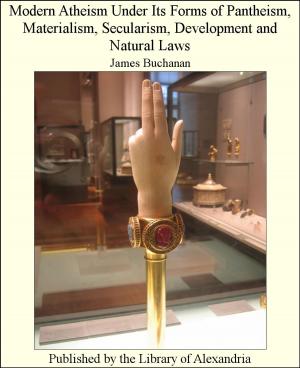English Wayfaring Life in the Middle Ages (XIVth Century)
Nonfiction, Religion & Spirituality, New Age, History, Fiction & Literature| Author: | Jean Jules Jusserand | ISBN: | 9781465624338 |
| Publisher: | Library of Alexandria | Publication: | March 8, 2015 |
| Imprint: | Language: | English |
| Author: | Jean Jules Jusserand |
| ISBN: | 9781465624338 |
| Publisher: | Library of Alexandria |
| Publication: | March 8, 2015 |
| Imprint: | |
| Language: | English |
The maintenance of roads and bridges in England was in the fourteenth century one of those charges which weighed, like military service, on the whole of the nation. All landed proprietors were obliged, in theory, to watch over the good condition of the highways; their tenants had to execute the repairs for them. The religious houses themselves, owners of property given in frank almoigne, that is to say, with a purely charitable object, were dispensed from every service and rent towards their benefactor, no other charge being usually left but that of saying prayers or giving alms for the repose of the donor’s soul. It remained, however, for them to satisfy for public weal the trinoda necessitas, or triple obligation, which among other duties consisted in the repairing of bridges. There existed in England a very considerable network of roads, the principal of which dated as far back as the Roman times. The province of Britain had been one of those where the greatest care had been bestowed upon the military and commercial ways by the Roman emperors. “The network of roads in the island,” says Mommsen, “which was uncommonly developed, and for which in particular Hadrian did much in connection with the building of his wall, was of course primarily subservient to military ends; but alongside of, and in part taking precedence over the legionary camps, Londinium occupies in that respect a place which brings clearly into view its leading position in traffic.” In many places are yet to be found remnants of the Roman highways, the more important of which were called in Anglo-Saxon times, and since, Watling Street, Erming Street, the Fosse, and Ikenild Street. “These Roman ways in Britain have frequently been continued as the publick roads, so that where a Roman military way is wanting, the presumption is in favour of the present highroad, if that be nearly in the same direction.” There are two reasons for that permanence: the first is that the roads were built by the Romans to supply needs which have not ceased to be felt; being cut, for instance, from London to the north through York; towards Cornwall along the sea coast; towards the Welsh mines, &c.; the second reason is the way in which they were built.
The maintenance of roads and bridges in England was in the fourteenth century one of those charges which weighed, like military service, on the whole of the nation. All landed proprietors were obliged, in theory, to watch over the good condition of the highways; their tenants had to execute the repairs for them. The religious houses themselves, owners of property given in frank almoigne, that is to say, with a purely charitable object, were dispensed from every service and rent towards their benefactor, no other charge being usually left but that of saying prayers or giving alms for the repose of the donor’s soul. It remained, however, for them to satisfy for public weal the trinoda necessitas, or triple obligation, which among other duties consisted in the repairing of bridges. There existed in England a very considerable network of roads, the principal of which dated as far back as the Roman times. The province of Britain had been one of those where the greatest care had been bestowed upon the military and commercial ways by the Roman emperors. “The network of roads in the island,” says Mommsen, “which was uncommonly developed, and for which in particular Hadrian did much in connection with the building of his wall, was of course primarily subservient to military ends; but alongside of, and in part taking precedence over the legionary camps, Londinium occupies in that respect a place which brings clearly into view its leading position in traffic.” In many places are yet to be found remnants of the Roman highways, the more important of which were called in Anglo-Saxon times, and since, Watling Street, Erming Street, the Fosse, and Ikenild Street. “These Roman ways in Britain have frequently been continued as the publick roads, so that where a Roman military way is wanting, the presumption is in favour of the present highroad, if that be nearly in the same direction.” There are two reasons for that permanence: the first is that the roads were built by the Romans to supply needs which have not ceased to be felt; being cut, for instance, from London to the north through York; towards Cornwall along the sea coast; towards the Welsh mines, &c.; the second reason is the way in which they were built.















